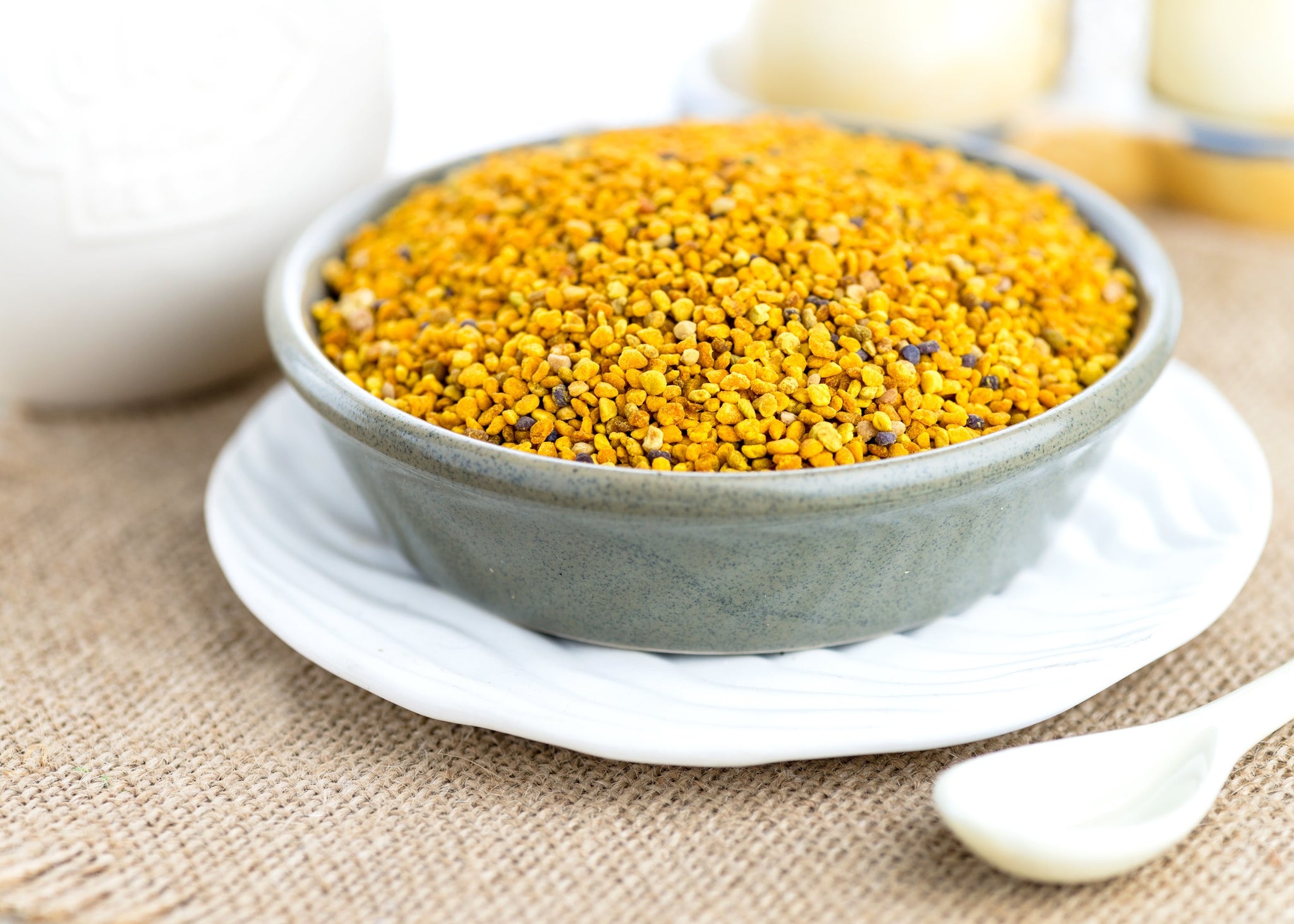Your Cart is Empty

By: Angela Van Alten / Ysseldyk, Beekeeper’s Daughter, Certified Nutritional Practitioner and Dutchman’s Gold Partner
Bee pollen, nature's superfood, has gained recognition for its numerous health benefits. This unique substance, collected by bees, undergoes a transformative process that enhances its nutritional and medicinal properties. In this article, we will explore the six key benefits of incorporating bee pollen into your daily diet, supported by human studies and peer-reviewed research.
1. NUTRITIONAL POWERHOUSE
Bee pollen is a rich source of essential nutrients, making it a true superfood. It contains a variety of vitamins, minerals, enzymes, and fatty acids. According to a study published in the Journal of Agricultural and Food Chemistry, bee pollen is particularly high in B vitamins, including thiamine, riboflavin, niacin, and pantothenic acid, as well as vitamin C and vitamin E. It also provides an array of minerals such as calcium, magnesium, zinc, and selenium.
2. SEASONAL ALLERGY RELIEF
Human studies have shown promising results regarding the effectiveness of bee pollen in alleviating seasonal allergies. A randomized, double-blind, placebo-controlled study published in the International Archives of Allergy and Immunology found that participants who consumed bee pollen experienced a significant reduction in allergy symptoms compared to those on a placebo. The researchers concluded that bee pollen supplementation can be an effective natural approach for managing seasonal allergies.
3. BOOST ENERGY AND ATHLETIC PERFORMANCE
Bee pollen has been studied for its potential to enhance energy levels and athletic performance. In a randomized controlled trial published in the Journal of the International Society of Sports Nutrition, athletes who consumed bee pollen exhibited improved aerobic performance and increased muscle strength compared to a placebo group. These findings suggest that bee pollen supplementation may offer benefits for athletes looking to enhance their performance.
4. POWERFUL ANTIOXIDANTS
Antioxidants play a vital role in protecting our cells from oxidative damage. Bee pollen has been found to possess potent antioxidant properties, as demonstrated in various human studies. A study published in the Journal of Medicinal Food evaluated the antioxidant activity of bee pollen and found that it effectively scavenged free radicals and reduced oxidative stress markers in the participants' blood. These findings highlight the potential of bee pollen as a natural source of antioxidants for promoting overall health and well-being.
5. HEALING AND SKIN BENEFITS
Topical application of bee pollen has been traditionally used to promote wound healing and improve skin health. A study published in the Journal of Wound Care investigated the effects of bee pollen ointment on chronic wounds. The researchers observed accelerated wound healing, reduced inflammation, and improved tissue regeneration in the group treated with bee pollen ointment. These findings suggest that bee pollen may have therapeutic applications in wound care and skincare.
6. LONGEVITY
Although human studies specifically focusing on the longevity effects of bee pollen are limited, its nutritional profile and potential health benefits suggest a positive impact on overall vitality. Bee pollen's rich nutrient content, including vitamins, minerals, and antioxidants, supports optimal cellular function and may contribute to a healthy aging process. However, further research is needed to explore the direct effects of bee pollen on lifespan in human populations.
INCORPORATING BEE POLLEN INTO YOUR DIET
When adding bee pollen to your diet, it is important to choose high-quality, pure products that are bee friendly. (Look on the company website for the source and Bee Friendly Promise)
Start with small amounts and gradually increase your intake as tolerated.
Bee pollen can be consumed by adding it to smoothies, yogurt, or sprinkling it over granola or salads. As with any dietary change, consult with a healthcare professional if you have specific health concerns or are on any medications.
Bee pollen offers a range of potential health benefits supported by human studies and scientific research. From providing essential nutrients to relieving seasonal allergies, boosting energy, offering antioxidant protection, promoting wound healing, and potentially supporting vitality, bee pollen is a remarkable superfood worth considering for your daily nutritional regimen.
OUR 5 FAVOURITE BEE POLLEN PRODUCTS:
FURTHER READING:
For a great read on how to manage seasonal allergies, see this article written by Dr. Cassie Irwin in Alive Magazine for July 2023.
https://www.alive.com/health/your-body-on-seasonal-allergies/
ABOUT THE AUTHOR: Angela Van Alten/Ysseldyk is a second-generation entrepreneur and co-owner of Dutchman’s Gold. She is the eldest daughter of John and Annie Van Alten, Dutchman's Gold founders. Angela is a Certified Nutritional Practitioner and holds a degree in Business. She has worked with some of Canada's top vitamin brands in various roles over the last 25 years, helping Canadians achieve optimal wellness. Her mission is to empower people to have an extraordinary life, while spreading Beehive Goodness at Dutchman's Gold..
REFERENCES: